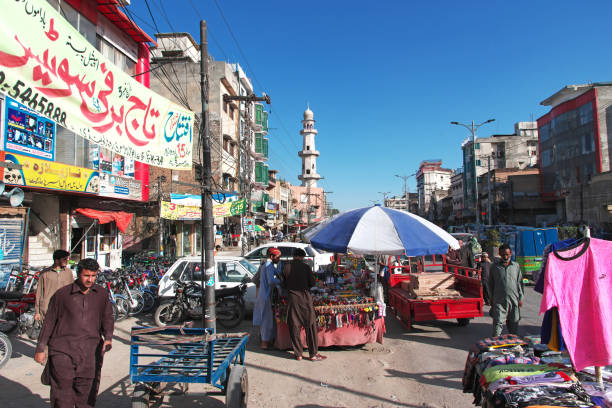The Punjab government’s recent establishment of dedicated price control police stations across Rawalpindi Division has stirred strong opposition from the local business community.
The initiative, designed to regulate commodity prices and curb profiteering, has resulted in the setup of specialized stations in each tehsil, aiming to enforce official price standards under the newly enacted Price Control Act.
The move, however, has not been well-received, with many local trade associations voicing concerns over its impact on small businesses and potential political bias in enforcement.
These price control police stations, equipped with temporary lockups, will be managed by assistant commissioners who oversee the detention and fine processes. Each station includes a team of 10 to 12 officers, with a police inspector responsible for apprehending shopkeepers suspected of overpricing.
The act specifies penalties ranging from Rs 5,000 to Rs 150,000 and jail terms between three days to one month for selling essential goods at inflated prices. Additionally, detained shopkeepers will cover expenses related to their detention, including transportation costs for the inspector’s journey to the shop and any incurred food expenses while held in lockup.
In a significant infrastructure investment, the government has completed the acquisition of 27 new buildings for these price control stations, currently being renovated to support the initiative. Each facility, supported by funds from the assistant commissioner’s office, will contain several rooms dedicated to office use, temporary holding cells, and arms storage.
Furthermore, newly assigned personnel will have access to official vehicles, motorcycles, and security gear, enabling them to monitor local markets and enforce price controls actively. These police stations are set to operate independently, under the supervision of assistant commissioners, ensuring strict adherence to official pricing regulations.
According to local business representatives, however, this new system represents an excessive regulatory burden, particularly for small and medium-sized shopkeepers. Several associations, including the Grocery Merchants Association, the Rawalpindi Division Grocery Merchants, and the Fruit and Vegetable Vendors Union, have raised objections, claiming the initiative will result in unfair costs and fines that could destabilize their operations.
The Central President of the Grocery Merchants Association, Salim Parvez Butt, argued that the financial obligations imposed on detained shopkeepers, including transportation and food expenses, are overly punitive. He also voiced concerns that the new system could selectively target businesses based on political affiliations under the pretext of price control.
Butt further emphasized the potential impact on small business owners, suggesting that the expenses associated with maintaining the price control stations could ultimately be passed down to shopkeepers, exacerbating the existing financial strain due to rising operational costs. He argued that the cost implications, coupled with the risk of political bias, could lead to unnecessary closures of small businesses and restrict market availability of essential items.
Despite the resistance from the trading community, officials have already begun compiling market inventories and holding discussions with local union representatives as part of preparatory measures for the enforcement phase. The personnel, now stationed temporarily in police quarters, will perform their duties in uniform, actively patrolling markets to prevent overpricing.
This initiative underscores the government’s commitment to regulating market prices, but its implementation has sparked a significant backlash. As enforcement begins, the government faces the challenge of balancing its efforts to stabilize prices with the business community’s concerns over operational costs and fairness in enforcement. The outcome will likely depend on the government’s responsiveness to the needs of local businesses, as well as its approach to enforcing the Price Control Act without creating additional financial burdens.























